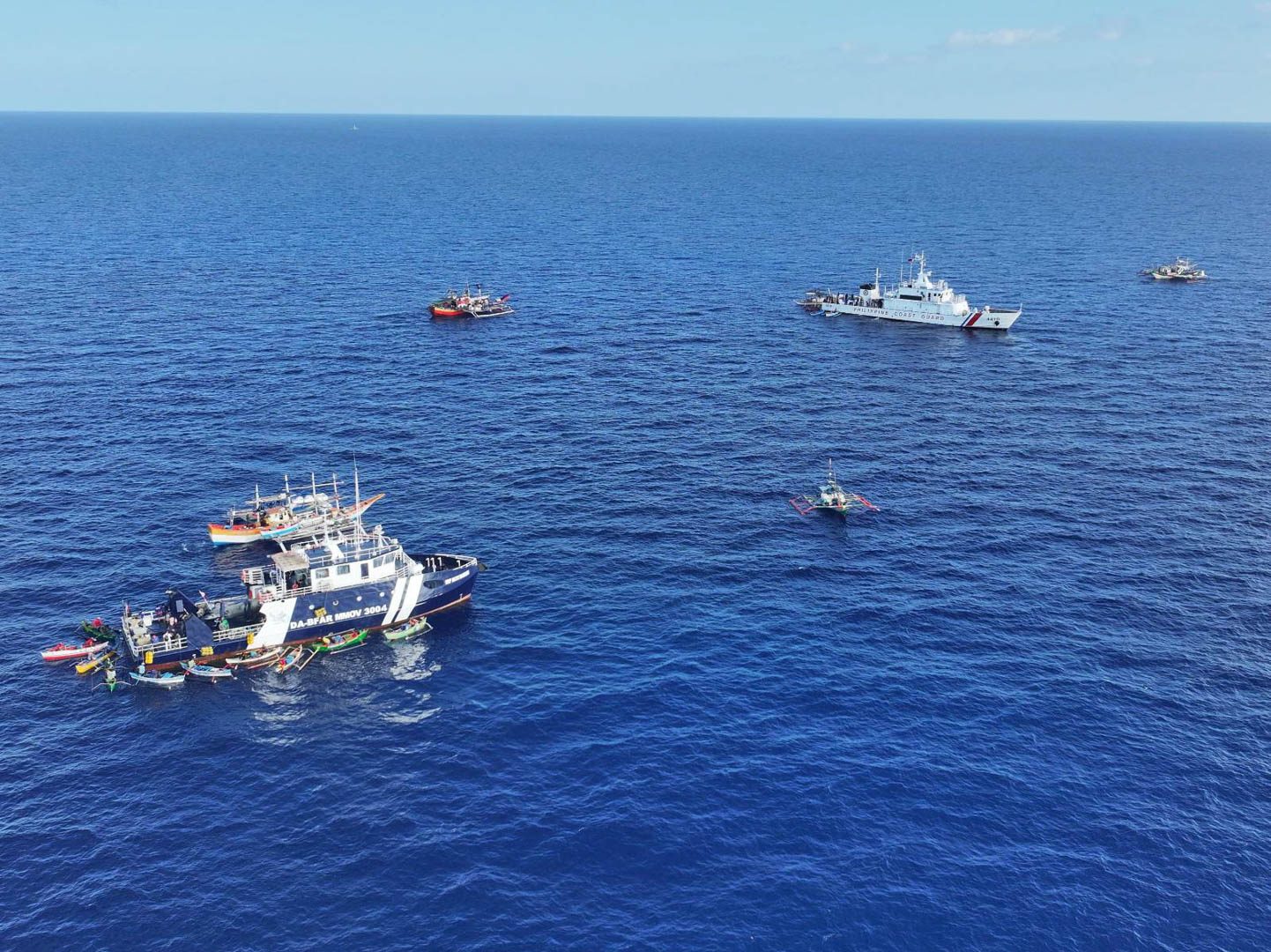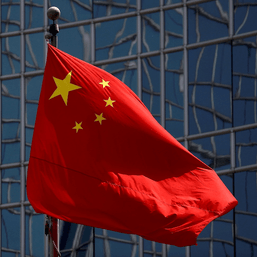SUMMARY
This is AI generated summarization, which may have errors. For context, always refer to the full article.

There’s a new development in Beijing’s claims on issues concerning the West Philippine Sea.
After insisting on a “gentleman’s agreement” and a “new mode” in Ayungin Shoal, Chinese officials are introducing a new term: a “temporary special arrangement” on Panatag or Scarborough Shoal.
The revelation of another supposed agreement made under the previous Duterte administration came days after the China Coast Guard blasted its water cannons on Philippine ships in Panatag Shoal, a feature just over 120 nautical miles off the coast of Zambales.
What is this supposed deal? Based on what was released by the Chinese embassy in Manila, there are essentially two parts to it:
- Filipino fishermen can fish with small fishing boats in designated waters, except the lagoon of Huangyan Dao (Panatag Shoal).
- The Armed Forces of the Philippines, Philippine Coast Guard (PCG), and other Philippine government vessels and aircrafts should refrain from entering the designated 12-nautical-mile territorial sea and corresponding air space of Huangyan Dao.
PCG spokesperson for the West Philippine Sea Commodore Jay Tarriela denied the existence of any such agreement.
The first point has always been public – former president Rodrigo Duterte and his administration bannered it as a deal that would give fisherfolk access to these waters, never mind that the lagoon is important because that’s where boats seek shelter during bad weather.
The second – Duterte supposedly agreeing that Philippine ships should not enter the 12-nautical-mile mark of Huangyan Dao (Panatag Shoal) – is new.
It also bears much heavier implications.
Retired Supreme Court senior associate justice Antonio Carpio, among the country’s top experts on the West Philippine Sea, said in making the supposed “temporary special arrangement,” Duterte “waived Philippine sovereignty, albeit temporarily.”
There are overlapping claims on Panatag Shoal, also known as Bajo de Masinloc. Because it is a high-tide elevation, the shoal generates territorial waters of its own.
Did Duterte cede ownership of Panatag?
In supposedly agreeing that the Philippine government would not enter that area, it was as if Duterte had agreed that Panatag was China’s.
The former president also waived the rights of Philippine fisherfolk when he supposedly agreed that they would not enter the lagoon. The shoal is considered the traditional fishing grounds of Filipino, Chinese, and Vietnamese fisherfolk, according to the 2016 arbitral award.
“Under the Constitution, then president Duterte had no power to waive, even temporarily, Philippine sovereignty or traditional fishing rights of Filipinos unless the waiver is embodied in a treaty ratified by the Senate,” said Carpio.
These supposed agreements – from the one in Ayungin to the one in Panatag – were not formal ones by any stretch of the imagination. No documents were signed and, for the most part, its details were not made public.
“These waivers are also void because these were done without fully informing Congress and the Filipino people. Moreover, China admits that these waivers constituted a ‘temporary special arrangement’ and thus could be repudiated anytime by either party,” added Carpio.
Beijing sees it differently. They’ve accused the Marcos administration of supposedly reneging on these deals while also claiming that new deals were made under the current administration. Philippine officials have denied making the deals as China claims.
Sometimes, China goes a step further, insinuating that the Philippines’ actions are the result of prodding by external elements. It’s a barely made reference to the Philippines’ treaty ally, the United States.
Philippine officials, including President Ferdinand Marcos Jr. himself, have rejected this framing of Manila’s diplomatic and strategic decisions.
“These acts of Duterte caused undue injury to poor Filipino fishermen and the government through Duterte’s gross, inexcusable negligence or evident bad faith. There is gross inexcusable negligence because the waivers clearly violated the Constitution. There is evident bad faith because Duterte did not fully disclose these waivers of sovereignty and traditional fishing rights to Congress and the Filipino people,” added Carpio.
In an interview with Rappler, Carpio also added that Duterte’s actions are also violations of the Philippines’ Anti-Graft Law.
Under Duterte, the Philippines grew closer ties with Beijing while also moving away from the United States.
Things have taken a 180-degree turn under Marcos, whose administration has strengthened ties with the US and other key countries while also becoming more forward in asserting its rights and claims in the West Philippine Sea. – Rappler.com
2 comments
How does this make you feel?








![[WATCH] Bamban POGO scandal: There’s a bigger fish than Alice Guo](https://www.rappler.com/tachyon/2024/07/inside-track-tcard-bamban-pogo.jpg?resize=257%2C257&crop=435px%2C0px%2C1080px%2C1080px)
![[Vantage Point] China’s silent invasion of the Philippines](https://www.rappler.com/tachyon/2024/07/TL-china-silent-invasion-july-16-2024.jpg?resize=257%2C257&crop=318px%2C0px%2C720px%2C720px)







![[Just Saying] SONA 2024: Some disturbing points](https://www.rappler.com/tachyon/2024/07/TL-marcos-sona-points-july-23-2024.jpg?resize=257%2C257&crop=335px%2C0px%2C720px%2C720px)






So now, will Former President Duterte remain scot-free?
He will since his enablers are in power.